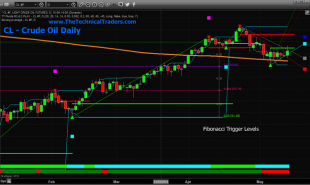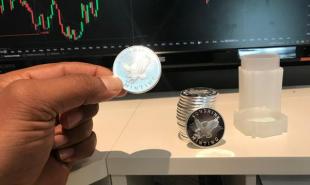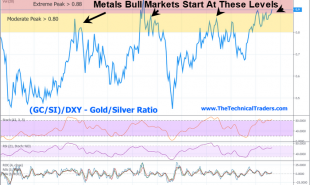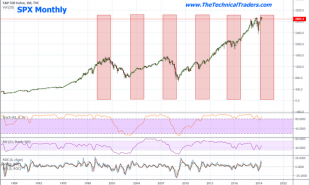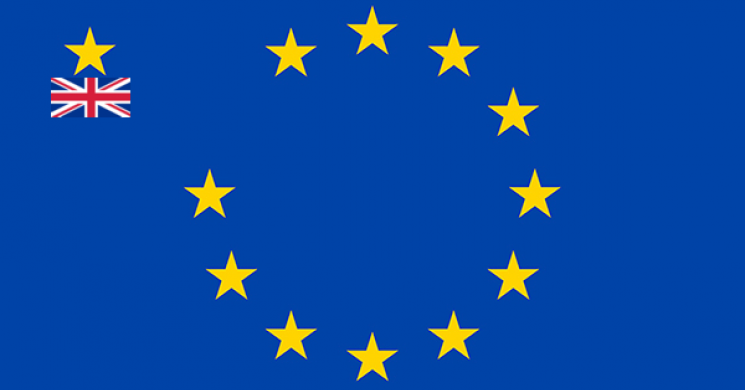
The UK Treasury's Brexit Report - the new Dodgy Dossier?
The United Kingdom Treasury presented its report on the possible implications of leaving the European Union, entitled:
HM Treasury analysis: the long-term economic impact of EU membership and the alternatives
Presented to Parliament by the Chancellor of the Exchequer by Command of Her Majesty.
A short study of this report and of real data freely available on public international websites (the World Economic Forum, the CIA World Factbook and the EU Commission’s own webpages) shows that it is basically propaganda. The report generally gives a very negative view on economic prospects for the UK outside the EU, despite the fact that the UK was successful outside the EU for centuries before it joined in 1973.
Two main factors stand out in this report:
1. The six country examples named in the report are Norway, Switzerland, Turkey, Canada, Russia, and Brazil. Why?
2. Why did the report not use EU trade with India and China as specific examples? India’s and China's economies are both larger than those of Russia and Brazil and out of the BRICS nations, the size of India’s economy is closest to that of the UK.
My immediate thought was perhaps the UK Treasury has chosen the worst examples possible as models for the trade situation for non-EU countries. That would seem to be true.
We should perhaps remember that the entire report is based upon economic models and there is very little presentation of any real data.
The choice of Country examples: Norway, Switzerland, Turkey, Canada, Russia and Brazil.
1) The first material fact is that 4 out of these 6 countries (Russia, Brazil, Canada and Norway) are major oil exporters! All 4 of these nations have taken a major hit to their export revenues in the last 2 years as the oil price has fallen from its $107 per barrel peak to under $30 per barrel at the lows recently. This is a slump of historic proportions. Even though oil has rallied in recent weeks, it is still only $50.
2) It is well known that both Russia and Brazil are currently in economic crisis and their respective currencies have fallen very sharply against the Euro, Pound and Dollar over the past couple of years, largely due to falls in oil prices but also due to low pirces for raw commodities in general, on which their revenues depend
3) Internal politics in Brazil have been chaotic because of their economic crisis and currency collapse.
4) There are also geopolitical factors. Russia is subject to economic sanctions from the EU and other countries over the dispute in Ukraine.
5) Another important piece of evidence is that 3 of the 6 countries, Russia, Brazil and Turkey are nations with relatively high barriers to free trade. This fact is given on the websites of the EU and other international organisations such as the World Economic Forum.
6) The absence of China and India in the report is telling. EU trade with Indian and China have been booming in the last couple of decades.
Some examples from the EU Commission website show serious barriers for EU trade with Brazil and Russia in particular:
Brazil's import restrictions
“According to the European Commission's latest Reports on Potentially Trade Restrictive Measures, over the last two years, Brazil is among the countries that have resorted to the highest number of new potentially trade-restrictive measures.
The Brazilian market is relatively highly protected with an applied customs averaging tariff of 13.5%.”
“The EU therefore consistently encourages Brazil to reduce tariff and non-tariff barriers, and to foster a stable and more open regulatory environment for European investors and traders.”
“...it is not clear how further progresses can be achieved in the Trade and Investment field.”
“Two years after the accession of Russia to the WTO, Russia is still not respecting all its WTO commitments ... it is not clear how further progresses can be achieved in the Trade and Investment field and in general with the New Agreement.”
“To protect certain sectors, Russia both in the lead up to its accession and after has introduced new protectionist measures at a time when a liberalisation of the trade regime would have been expected.”
This is added to the possible effect of sanctions over the Ukraine conflict:
“The Russian Federation's role in the Ukraine conflict has seriously affected EU-Russia relations. Consequently, some of the activities outlined below are at a halt and sanctions have been adopted.”
“Targeted measures have been taken against Russia in areas including: access to capital markets, defence, dual-use goods and sensitive technologies (including those in the energy sector).”
“Russia has taken retaliatory measures, including a ban on the import of certain foods from the EU and several non-EU countries.”
These factors make for a very negative bias in the Treasury Report, since they are using Russia and Brazil as named examples.
Turkey also has issues. The Global Competitiveness Report 2015–2016 from the World Economic Forum states the following:
“The Global Competitiveness Index captures the fundamentals of an economy. Recent developments, including ... security issues (e.g., Turkey) must be kept in mind when interpreting the results.”
Now it must be admitted that not even the UK Treasury could exclude Switzerland and Norway from its report, since they are both physically embedded in the European continent but are not in the EU.
Even so both of these countries faced specific problems in the last year:
Firstly, Norway, a highly successful economy, is a major oil exporter and has taken a hit from low oil prices, reference the CIA World Factbook:
“The petroleum sector provides about 9% of jobs, 15% of GDP, and 39% of exports, according to official national estimates.”
“Lower oil prices in 2015 caused growth to slow, increased unemployment, and weakened the Norwegian krone.”
Even so, it needs to be pointed out that unemployment in Norway is still low (4.4%) compared to that of its neighbour Sweden (7.4%). Norway is not in the EU; Sweden is.
https://www.cia.gov/library/publications/resources/the-world-factbook/geos/sw.html
Also, this entry mentions that Sweden's economy was hit in 2013 during the European crisis by the fact that it was essentiallt too highly dependent on exports to the rest of the European Union, a low economic growth area. This point is relevant to the UK, which shows the dangers of having all your eggs in one basket. Britain's trade needs to be diversified among higher growth areas of the world and not restricted to the EU. Weakness in trading partners can lead to weakness in your own economy:
"Economic growth slowed in 2013, as a result of continued economic weakness in Sweden’s European trading partners; Sweden’s economy experienced modest growth in 2014-15, with real GDP growth above 2%, but continues to struggle with deflationary pressure."
With regard to Switzerland, one of the world’s most competitive countries, the Global Competitiveness Report 2015–2016 from the World Economic Forum states the following:
“Recent developments have created a number of downside risks and leave little policy space. These include the sluggish recovery in key trading partner countries; the appreciation of the Swiss franc.”
Even so, it needs to be pointed out that unemployment in Switzerland is low (3.3%) compared to that of its neighbour Austria (5.8%) Switzerland is not in the EU; Austria is.
The CIA Factbook page says:
“Austria's 5.8% unemployment rate, while low by European standards, is at its highest rate since the end of World War II, driven by an increased number of refugees and EU migrants entering the labor market.”
George Osborne is not likely to tell you that!
China and India
The EU Commission’s webpages on trade show that China and India have been major growth areas outside of the EU for trade. China and India were not named as model countries in the UK Treasury report.
“EU-China trade has increased dramatically in recent years.”
The EU document “Facts and figures on EU-China trade” says that China has become one of the fastest growing markets for European exports (doubling between 2008 and 2013) and that China's importance as a market can only increase in the long term.
The EC website has a number of positive things to say regarding trade with India too:
“The EU and India are committed to further increase their trade flows in both goods and services as well as bilateral investment.”
“The value of EU-India trade grew from €28.6 billion in 2003 to €72.5 billion in 2014.”
“India enjoys trade preferences with the EU under the Generalised Scheme of Preferences.”
The prospects for these two non-EU countries and their trade with the EU look bright, according to the EU itself!
Finally, 2 points
1) It is mentioned in the Treasury report that it uses an economic model called NiGEM that includes 40 countries and country blocks. However in this 200 page report, it does not name those 40 countries. Why not?
2) The report makes no mention of the serious problems of EU countries such as Greece that have suffered shrinkage in their economies and enormous (sometimes over 25%) general unemployment and over 50% youth unemployment (at one point, this was over 60%!). It makes no attempt to admit to the economic devastation that the European Union and its institutions have caused amoung its own member countries and the fact that, after several years of crises, there is no solution in sight.
https://www.cia.gov/library/publications/resources/the-world-factbook/geos/gr.html
"By 2013 the economy had contracted 26%, compared with the pre-crisis level of 2007. "
Conclusion.
The UK Treasury Report is trash – basically a "dodgy dossier" (like the infamous one from Tony Blair in 2003 asserting Iraq’s ownership of Weapons of Mass Destruction and the ability to launch them in 45 minutes, neither of which was true). It is merely propaganda and conjecture.
Even the Treasury report itself does admit:
“As there is no precedent for an economy like the UK leaving the EU, any quantitative analysis is subject to uncertainty.”
So George Osborne’s report, saying that that there will be uncertainly if we leave the European Union - is itself uncertain! :-)
A more realistic comparison might be obtained by comparing similar economies that are inside and outside of the European Union. A comparison of Norway vs. Sweden or Switzerland vs. Austria might help to illuminate the situation. Even a look at these two pairs of nearly identical countries using their CIA World Factbook website entries linked above shows that there are very few economic performance differences between Norway and Sweden or between Switzerland and Austria, except that unemployment in the EU country is higher than that in the corresponding non-EU country!
Read more by BrexitNews


